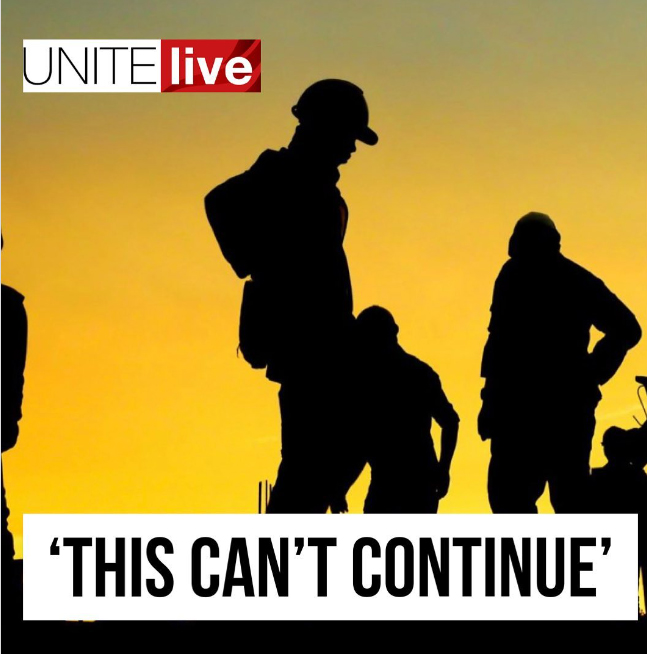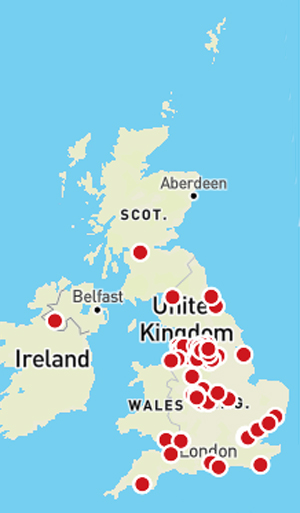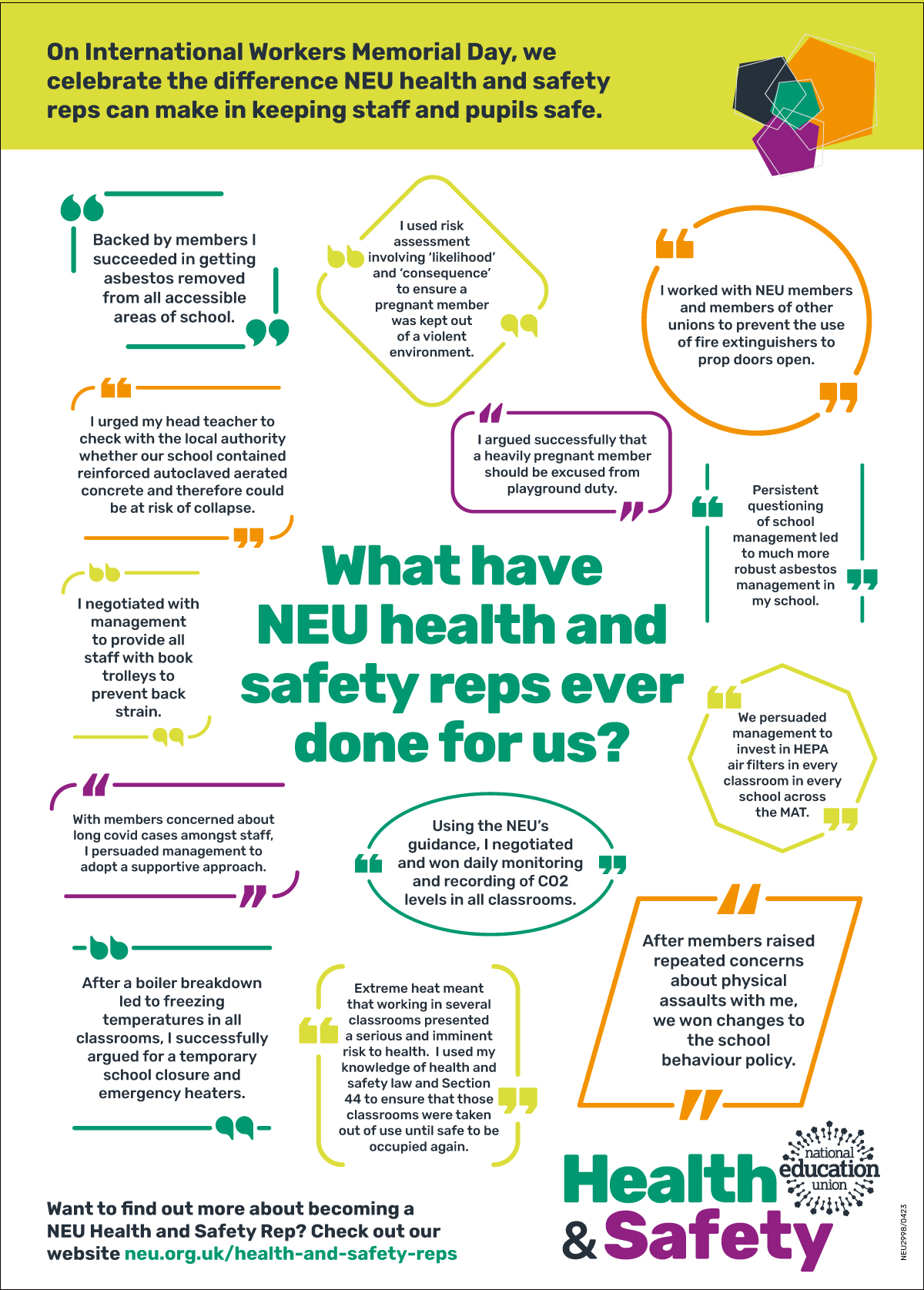
On International Workers’ Memorial day, FBU National Officer Riccardo La Torre reflects on how health and safety has been won by struggle and solidarity, not gifted by bosses.
If you visit the Fire Brigades Union head office and climb the stairs to the top floor, you will find yourself pausing in front of a wall covered with a long list of names. For those of us who work in the building, this list is a daily reminder of why we’re there and why the union exists. Each of these two thousand plus names belongs to a firefighter killed in service. It is in their memory that we continue to organise and fight for our lives.
If we had a national record of every firefighter death from cancer or other workplace diseases, there would be thousands more names to add. In 2022, the World Health Organisation confirmed what many of us in the FBU already knew from tragic experience: firefighting is a cancer-causing occupation.
Every year on April 28th, we come together for International Workers Memorial Day, to remember each of these, and all workers’, lives lost. If you work in the fire service, you will know that our memorials are not reflections on a distant past. The fight for safety and our future is sadly still very much an ongoing struggle which shapes our lives now.
For many, ‘health and safety’ conjures up images of top-down clipboard tapping, high vis vests and managerial risk assessments. In truth, workers have had to fight ferociously to protect our health at work, and for our safety from injury and harm. Nothing has been handed to us, nothing has been gifted by bosses. The history of health and safety is of organised, radical class action. In the memory of every worker who hasn’t returned home from a shift, what we demand for ourselves and our colleagues must stay rooted in this tradition.
Take breathing apparatus (BA): arguably one of the most iconic symbols of firefighter safety. The cylinder, set and mask are what allow firefighters to breathe safely during firefighting and rescue operations. But the BA sets we now wear on our backs were hard won. Following the deaths of two firefighters at the 1958 Smithfield fire, the FBU launched demands for modernised BA that would protect lives. As a line from the union magazine at the time read, “this is the age which has launched the Sputnik. But in the fire service our breathing apparatus set has remained substantially unchanged for over 40 years.”
We won that campaign and have continued to fight to keep improving our BA ever since. During my time as the union’s Health and Safety lead, I’ve seen bosses try to take BA away from firefighters attending high-rise building fires. I’ve seen them attempt to stop PCR-covid testing for firefighters at the peak of the pandemic, and to deny the link between firefighting and cancers.
These constant attacks are why FBU health and safety reps work tirelessly across fire services every single day. On the ground, our reps know that we cannot allow the rights we have won to be rolled back or blocked.
In 2016, the Trades Union Congress published The Union Effect, a report finding that the health of a workplace is directly impacted by whether workers are part of a union: ‘organised workplaces are safer workplaces’. In a profession as dangerous and volatile as fire and rescue, we cannot afford to let our organisation slip.
To make sure we return home safely at the end of each shift, we must demand safety committees, our right to time off for training and facilities. We must use the Brown Book, speaking up for our rights every time they are threatened.
Right now, the need for a strong and fighting membership is as urgent as ever as we demand action on firefighter cancer.
Together we’ve already forced this issue on to the agenda. When the government and employers said there wasn’t enough evidence to act, we set up a lottery to fund and commission the research.
Where fire services fail to provide information on how firefighters can protect themselves from toxic fire effluents, we run our own decontamination training.
While there is currently no health monitoring for firefighters to help detect cancers early, we have now launched the first cancer testing research project for firefighters in the UK.
All progress has been down to firefighters organising and making it happen against the odds. But we’re miles behind other countries when it comes to legislation, protection and support for firefighters facing cancer. The US, Canada, Australia, and Poland, amongst others, all have laws in place that recognise these diseases as occupational – caused by going to work.
The UK government and employers are still failing to take any serious action. It’s our job as organised workers to demand, campaign for and win these protections. We’ve done it throughout our history, and we will do it again.
This Workers Memorial Day, we remember every firefighter who has fallen in the line of duty, and every firefighter killed by a disease or cancer caused by their work.
A failing HSE cut to the bone or NFCC bosses’ committees cannot be relied upon to protect and defend the health, safety and welfare of firefighters, in fact we often see the opposite. As our history demonstrates, it is often down to us, and only us, to organise and do for ourselves and each other.
No one, no one, should get ill or killed for going to work. Today and every day, we remember the dead and fight for the living.
https://www.fbu.org.uk/blog/health-and-safety-won-through-struggle



